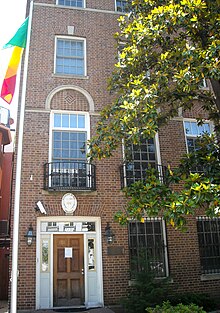
Ghana–United States relations are the diplomatic relations between Ghana and United States.
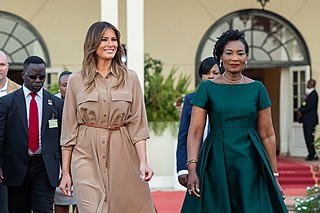
{{Use American English {date=February 2022}}

The diplomatic relationship between the United States of America and Zambia can be characterized as warm and cooperative. Relations are based on their shared experiences as British colonies, both before, after and during the struggle for independence. Several U.S. administrations cooperated closely with Zambia's first president, Kenneth Kaunda, in hopes of facilitating solutions to the conflicts in Rhodesia (Zimbabwe), Angola, and Namibia. The United States works closely with the Zambian Government to defeat the HIV/AIDS pandemic that is ravaging Zambia, to promote economic growth and development, and to effect political reform needed to promote responsive and responsible government. The United States is also supporting the government's efforts to root out corruption. Zambia is a beneficiary of the African Growth and Opportunity Act (AGOA). The U.S. Government provides a variety of technical assistance and other support that is managed by the Department of State, U.S. Agency for International Development, Millennium Challenge Account (MCA) Threshold Program, Centers for Disease Control and Prevention, Department of Treasury, Department of Defense, and Peace Corps. The majority of U.S. assistance is provided through the President's Emergency Plan for AIDS Relief (PEPFAR), in support of the fight against HIV/AIDS.

U.S.–Uzbekistan relations formally began when the United States recognized the independence of Uzbekistan on December 25, 1991, and opened an embassy in Tashkent in March 1992. U.S.-Uzbekistan relations developed slowly and reached a peak following the U.S. decision to invade Afghanistan following the September 11, 2001 attacks. Relations cooled significantly following the "color revolutions" in the former Soviet republics of Georgia, Ukraine, and Kyrgyzstan in 2003–2005, and the Government of Uzbekistan sought to limit the influence of U.S. and other foreign non-governmental organizations (NGOs) working on civil society, political reform, and human rights inside the country.
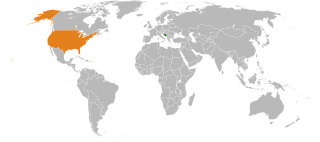
Relations between Bosnia and Herzegovina and the United States are described as very strong.
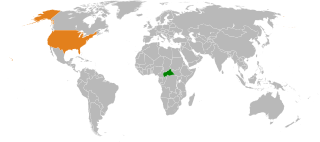
Central African Republic–United States relations are the international relations between Central African Republic and the United States of America. The relations have generally been positive, although concerns over the pace of political and economic liberalization and human rights have affected the degree of support provided by the United States to the Central African Republic.

Chad–United States relations are the international relations between Chad and the United States.

Relations between Costa Rica and the United States have been historically close; nevertheless there were instances in history where the US and Costa Rica disagreed. One such example might be the case of Freebooter William Walker. Nevertheless, considering that Costa Rica generally supports the U.S. in international fora, especially in the areas of democracy and human rights, modern day relations are very strong.

There is a U.S. Embassy in Guatemala located in Guatemala City. According to the United States Department of State, relations between the United States and Guatemala have traditionally been close, although sometimes they are tense regarding human, civil, and military rights.
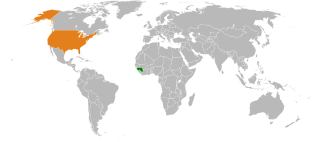
Guinea – United States relations are bilateral relations between Guinea and the United States.

Madagascar – United States relations are bilateral relations between Madagascar and the United States.
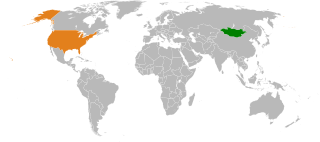
Mongolia–United States relations are bilateral relations between the United States and Mongolia.

The United States established official relations with Nepal in 1947 and opened its Kathmandu embassy in 1959. Relations between the two countries have always been friendly. U.S. policy objectives toward Nepal center on helping Nepal build a "peaceful, prosperous, and democratic society."

Niger–United States relations are bilateral relations between Niger and the United States. Niger and the United States have a strong and longstanding partnership based on shared democratic values and a commitment to promoting peace, security, and development in West Africa. The two countries cooperate on a range of issues, including counter-terrorism, trade and investment, and health and education. On August 4, 2023, Abdourahamane Tchiani's military junta severed diplomatic ties with the US after a successful coup d'état deposing Nigerien president Mohamed Bazoum.
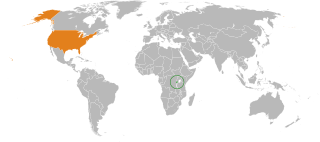
Rwanda–United States relations are bilateral relations between Rwanda and the United States.

Senegal–United States relations are bilateral relations between Senegal and the United States.

In a 2005 BBC World Service Poll, 30% of Sri Lankans view American influence positively, with 20% expressing a negative view. According to the 2012 U.S. Global Leadership Report, 14% of Sri Lankans approve of U.S. leadership, with 37% disapproving and 49% uncertain.

Togo–United States relations are bilateral relations between Togo and the United States.

Tunisia – United States relations are bilateral relations between Tunisia and the United States.
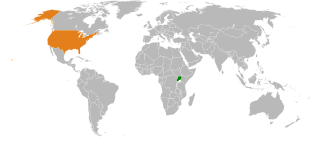
Uganda – United States relations are bilateral diplomatic, economic, social and political relations between Uganda and the United States.


